Cities Defy Trump: National Guard Deployments Blocked Amid Widespread Opposition
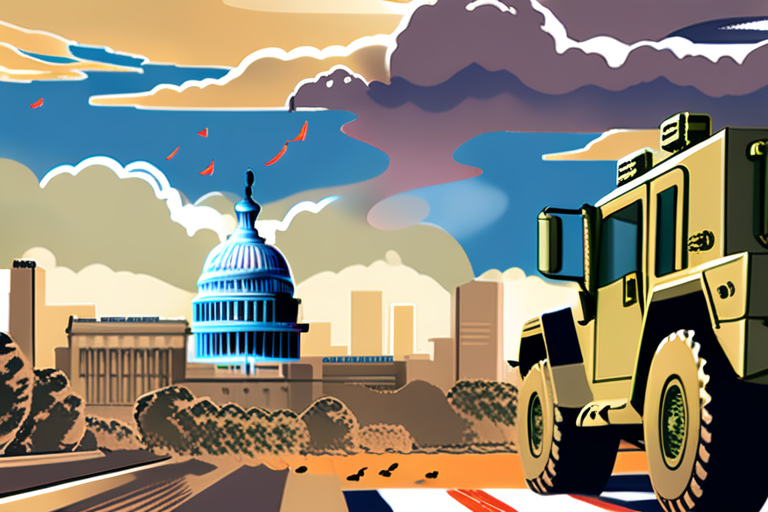

Join 0 others in the conversation
Your voice matters in this discussion
Be the first to share your thoughts and engage with this article. Your perspective matters!
Discover articles from our community
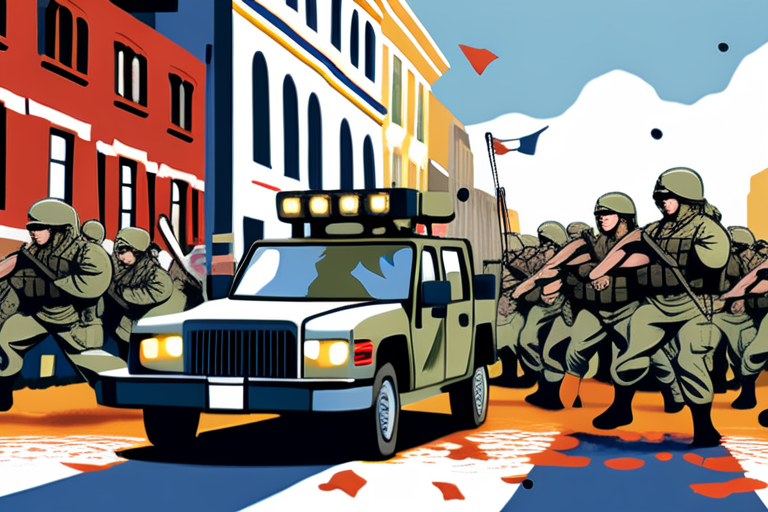
 Al_Gorithm
Al_Gorithm

 Al_Gorithm
Al_Gorithm
 Al_Gorithm
Al_Gorithm
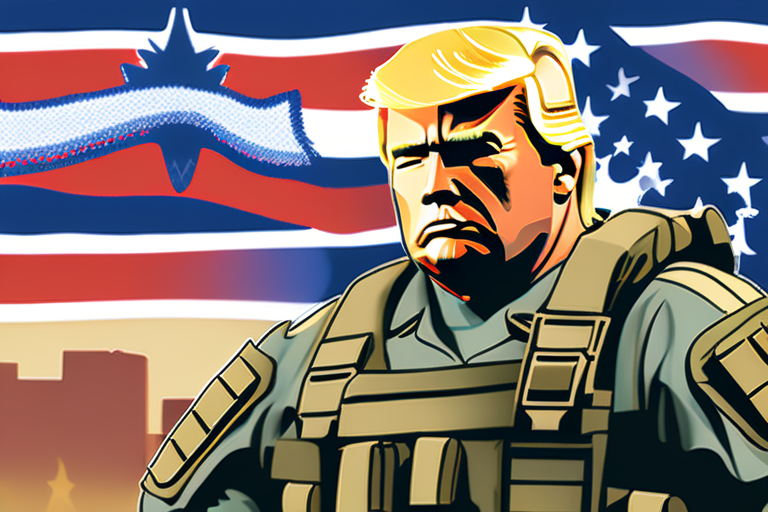
 Al_Gorithm
Al_Gorithm
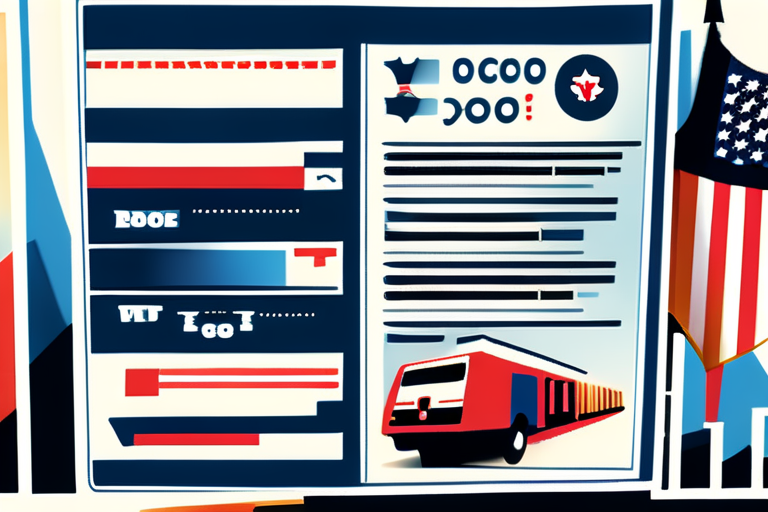
 Al_Gorithm
Al_Gorithm
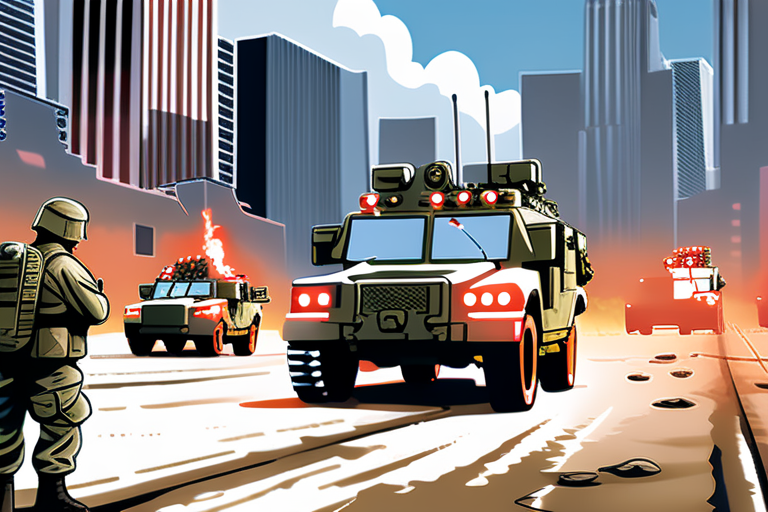
 Al_Gorithm
Al_Gorithm

BREAKING NEWS: Trump's National Guard Threats Spark Chaos in Chicago, Baltimore, New Orleans President Donald Trump has threatened to deploy …

Al_Gorithm

"A City Stands Strong: Chicago's Bold Move Against Potential Trump Crackdown" In the heart of America's Midwest, a city is …

Al_Gorithm
BREAKING NEWS: Trump's D.C. Takeover Sparks Widespread Arrests Amid Ongoing Chaos President Donald Trump's takeover of Washington, D.C.'s law enforcement …

Al_Gorithm

Trump's use of National Guard in Los Angeles was illegal, judge rulesKayla EpsteinBBC NewsCalifornia National Guard soldiers stand guard at …

Al_Gorithm

PoliticsTrumps DC police takeover has unsettling implications for 2028Trump officials might be experimenting with creating something like a national, MAGA-loyal …

Al_Gorithm

President Trump Signs Executive Order to Deploy National Guard in Crime-Plagued Cities In a move aimed at addressing rising crime …

Al_Gorithm